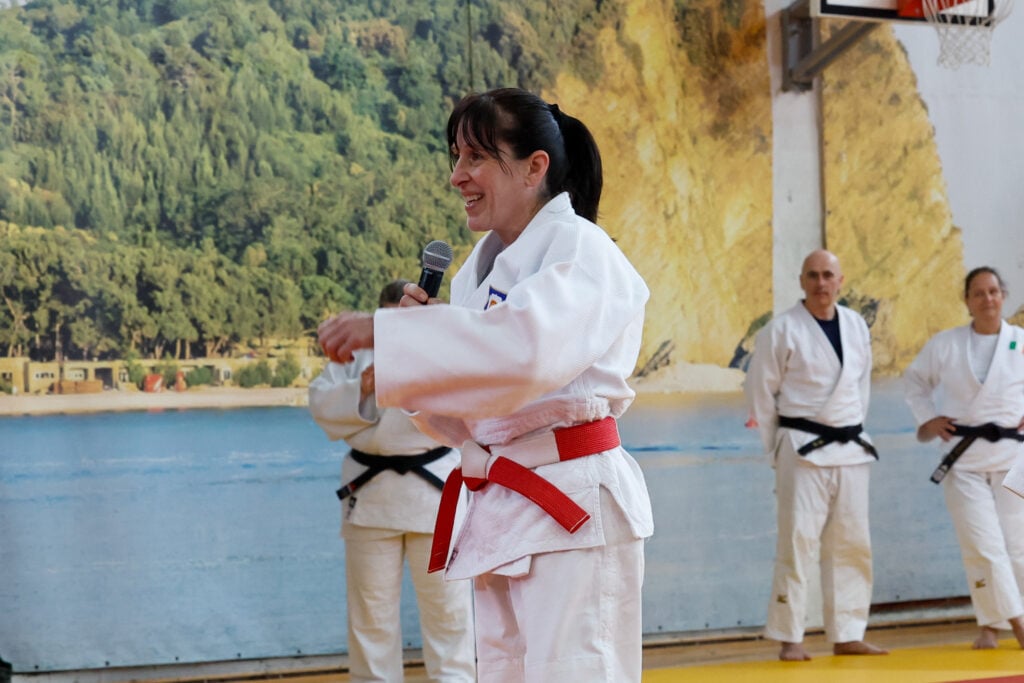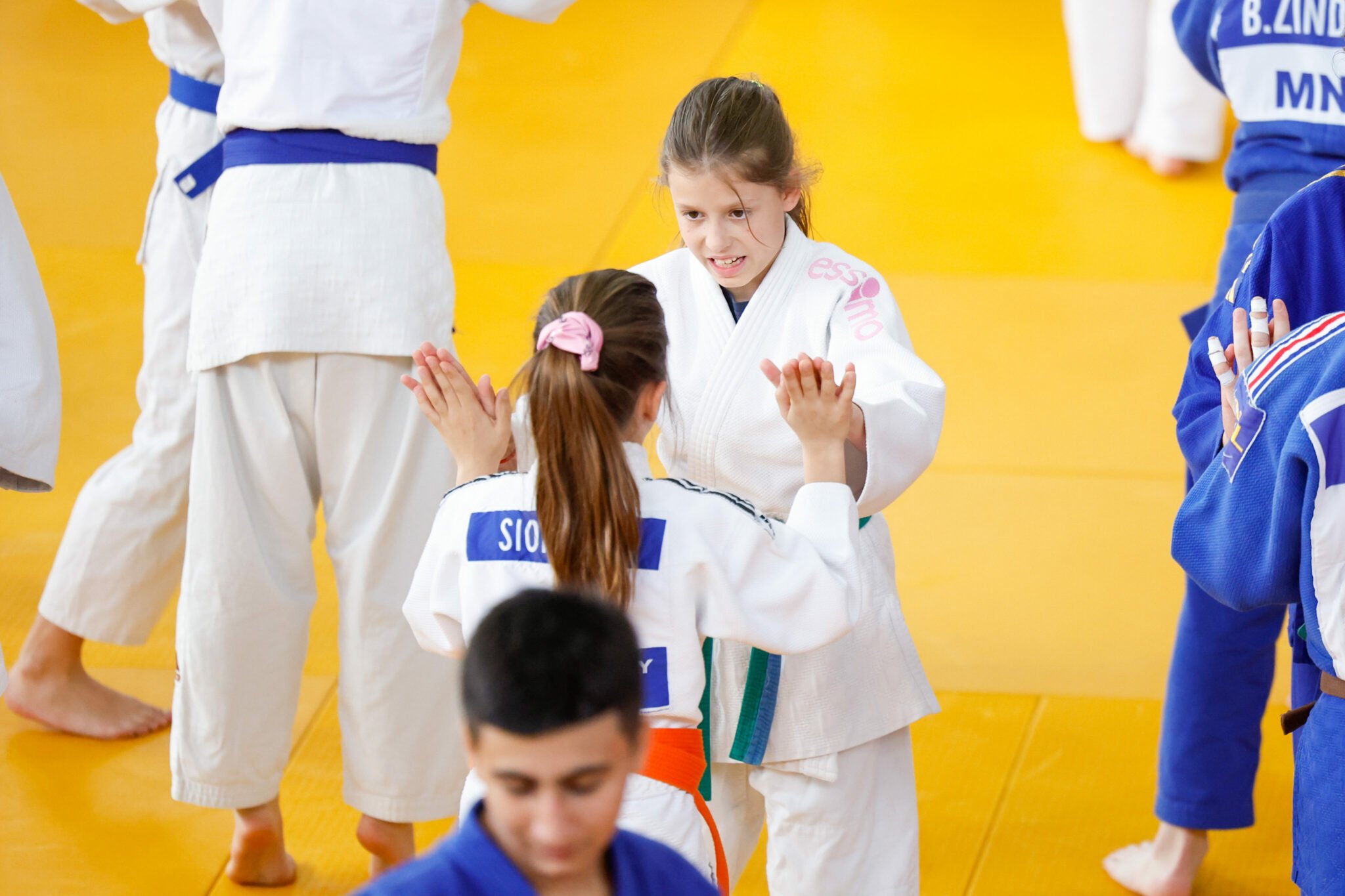Earlier in the day, in the heart of Montenegro’s lively Kids Camp, filled with the energy of infectious laughter and joy, Monika Piredda, EJU Kata Commissioner, stood calm yet animated, her eyes lighting up as she watched young judoka practice something that was very close to her heart: kata.
Kata is a foundational pillar in judo, it builds technique, enhances understanding and connects judoka to the roots of their art. For the first time, Kata for Children was officially included as part of the Kids Camp program and for Piredda, this felt like a long-awaited recognition. “Normally, kata and shiai are seen as separate,” she says with a smile. “But kata is judo. It’s not something else.”
Though her session was brief, Piredda made every minute count. Her focus was clear: “I chose only some basic things, ukemi, how to break balance, just one technique,” she explains. “But I hope they understood that kata isn’t another sport. It’s something that lives inside judo. Kata is judo. They can use kata elements even in competition or randori. Kata helps you improve, your movements, your ukemi, your posture. Even your health,” she says. “It teaches control and intention.”

One of the barriers often cited around kata is time but Piredda dismisses that as a myth. “Coaches don’t need to dedicate separate hours for kata,” she insists. “They can use simple games or insert kata during warm-up. It’s not difficult. Just a few elements enough for beginners to catch. Later, if they want to go deeper, they already have the foundation.” It’s advice drawn from deep experience. Piredda began judo at just nine years old and never looked back. “I never gave up,” she says. Though she was a shiai competitor well into her 30s, her love for kata deepened when she took on a national coaching role in Italy in 2000. “In Italy, we have different coaches for kata. That’s when I started to focus professionally.”
When asked what kata meant to her personally, Piredda’s answer was as direct as it was powerful: “Kata symbolises judo. It is judo.” That belief was echoed in the kids’ performance during the opening ceremony of the European Judo Championships 2025, a proud moment for Piredda, who was visibly impressed. “They were very good,” she said. “They only trained for a few days. I just gave the coaches suggestions, and they did great.”
As the camp continues buzzing, Piredda’s mind is already leaping forward. “For Montenegro, this is an important moment,” she says thoughtfully. “Kata is part of developing all part of judo. I hope we will see some of these kids in the next kata European Championship.”
Author: Szandra Szogedi




